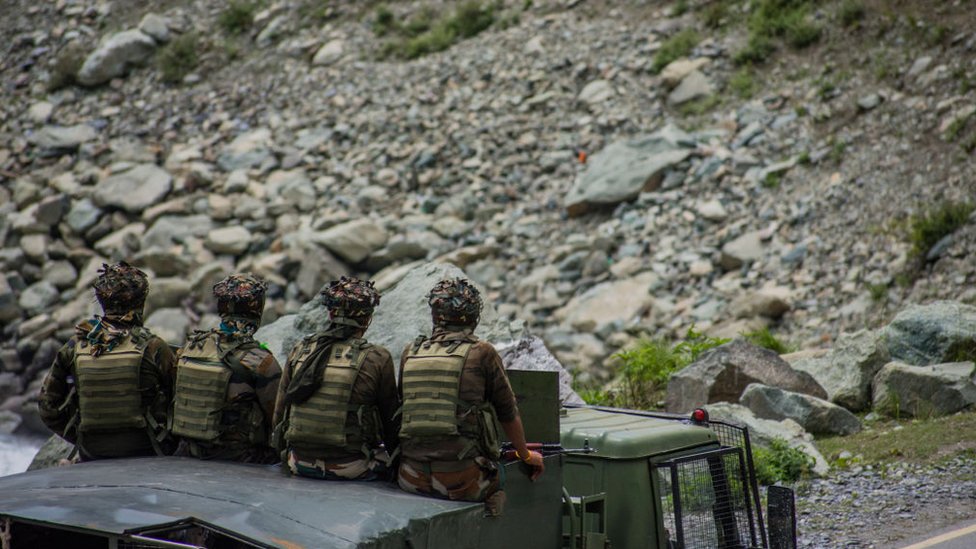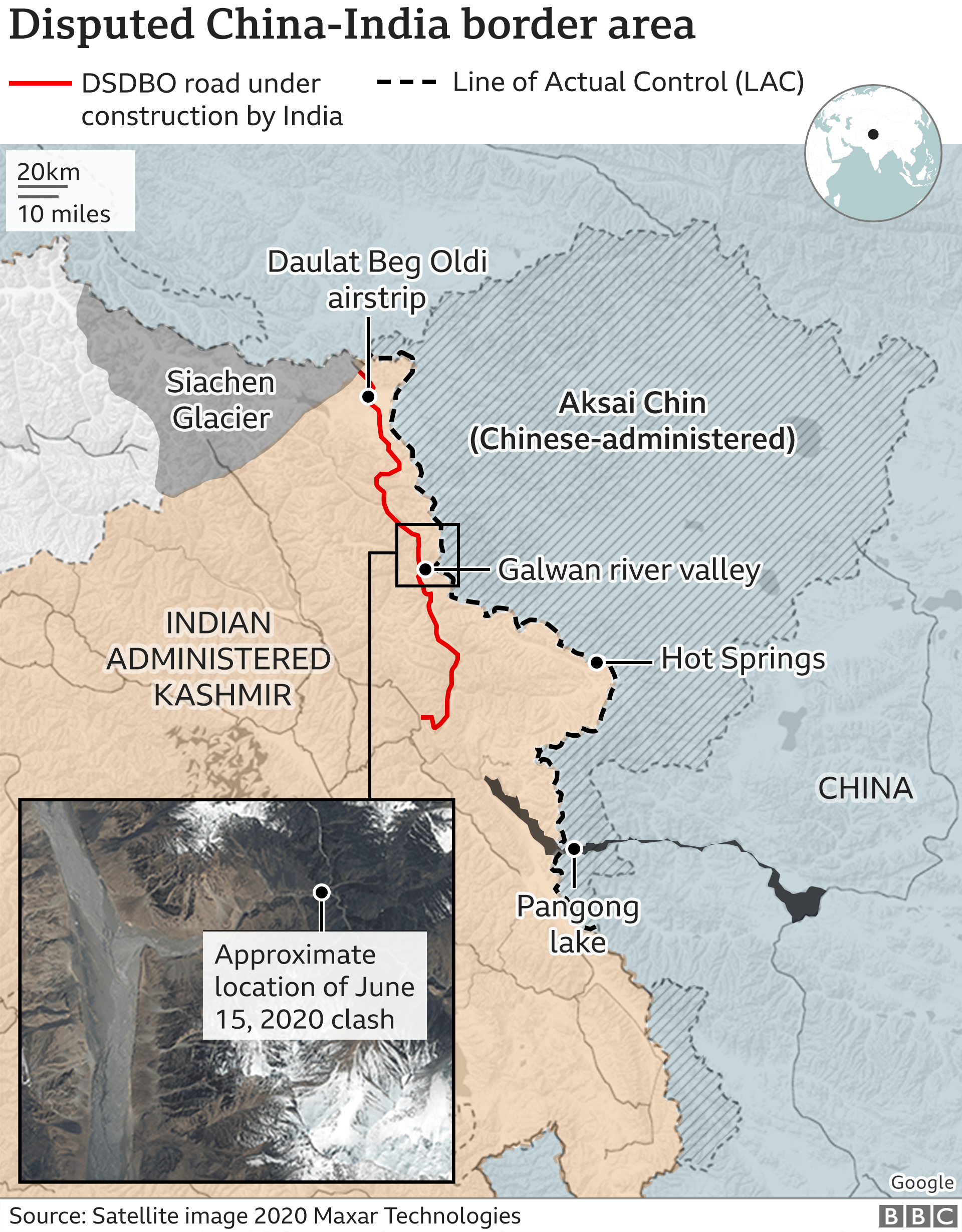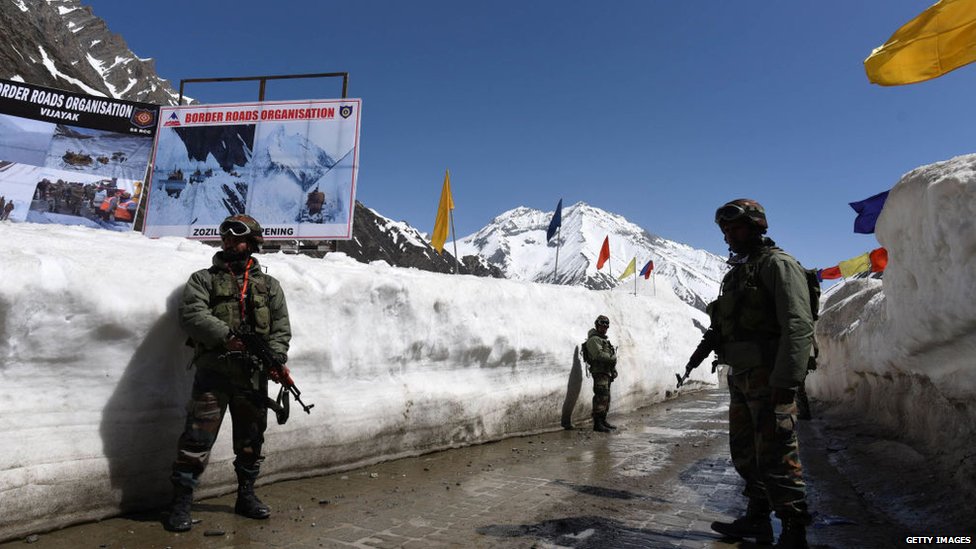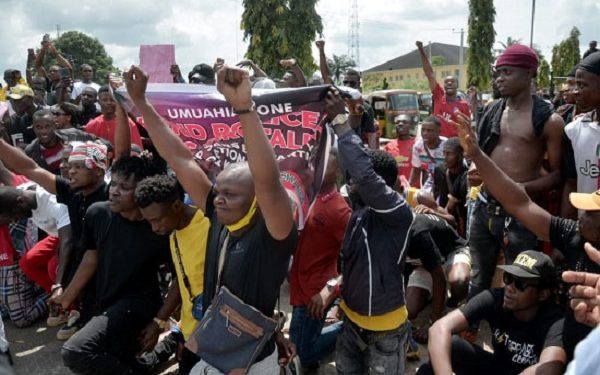India sends ‘hotline’ message to Chinese over alleged kidnapping
India’s military has sent a message to its Chinese counterparts over reports that five Indian civilians were kidnapped in a border state last week.
An Indian cabinet minister said a “hotline message” had been sent to the Chinese army. An allegation that five men were kidnapped by Chinese troops was first tweeted on 5 September by an Indian lawmaker from Arunachal Pradesh state.
Relations between the powers have been deteriorating since a clash in June.Kiren Rijiju, minister of state for minority affairs, who is from the isolated border state of Arunachal Pradesh where the kidnappings reportedly took place, said a military hotline designed to help defuse border tensions had been activated to send a message to China’s military.
China’s foreign ministry spokesman Zhao Lijian said Beijing had “no details to release yet” about the incident, adding that China had “never recognised so-called ‘Arunachal Pradesh’, which is China’s south Tibet region”.
Arunachal Pradesh lawmaker Tapir Gao had earlier tweeted that the alleged abduction happened on 3 September near the border. He did not give more details.
Relations have been steadily deteriorating since June, when 20 Indian soldiers were killed in a skirmish in the disputed Ladakh border area. China did not comment on reports that it had also suffered casualties.
In August, India accused China of provoking military tensions at the border twice within one week. Both charges were denied by China, which said that the border stand-off was “entirely” Their fault.India accused the Chinese of “amassing of large number of troops, aggressive behaviour and attempts to unilaterally alter the status quo”.
While there has been no fresh violence, minor skirmishes have been reported, with analysts describing the situation at the border as fluid since June. Both countries regularly accuse each other of instigating the fight in the Himalayan region of Ladakh by crossing the border, a poorly demarcated line that snakes through the inhospitable terrain.
Despite several rounds of military and diplomatic talks, the nuclear-armed neighbours have failed to resolve their border disputes.

What happened in June?
Media reports said troops clashed on ridges at a height of nearly 4,300m (14,000ft) on steep terrain, with some Indian soldiers falling into the fast-flowing Galwan river in sub-zero temperatures.At least 76 Indian soldiers were reportedly injured in addition to the 20 dead.
Read Also: India Records 77226 New Covid 19 Cases In 24 Hours To Take Their Total Number To 3-38Million
China has not released any information about casualties on its side.The fighting took place without any firearms because of a 1996 agreement barring guns and explosives from the area.

Why did the troops clash?
The Line of Actual Control, as the disputed border between the two nations is known, is poorly demarcated. The presence of rivers, lakes and snowcaps mean the line can shift.
The soldiers on either side – representing two of the world’s largest armies – come face to face at many points. India has accused China of sending thousands of troops into Ladakh’s Galwan valley and says China occupies 38,000sq km (14,700sq miles) of its territory.
Several rounds of talks in the last three decades have failed to resolve the boundary disputes.The two countries have fought only one war so far, in 1962, when India suffered a humiliating defeat.

There are several reasons why tensions have risen recently – but competing strategic goals lie at the root, and both sides blame each other.
India’s new road in what experts say is the most remote and vulnerable area along the border in Ladakh could boost Delhi’s capability to move men and materiel rapidly in case of a conflict. Analysts say the state decision to ramp up infrastructure seems to have infuriated Beijing.



